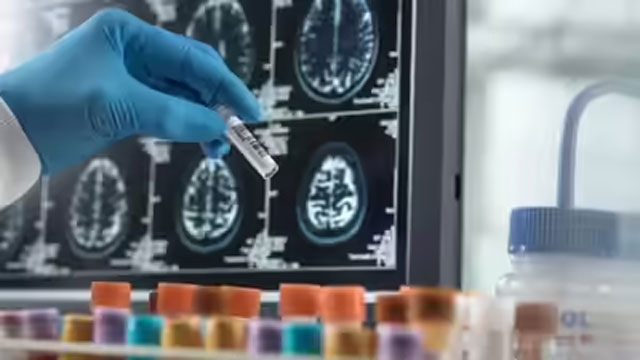Daijiworld Media Network- New Delhi
New Delhi, Sep 9: Alzheimer’s disease, the most common form of dementia, affects millions worldwide by gradually eroding memory, thinking, and the ability to perform daily tasks. Now, in a major breakthrough, scientists have developed a simple blood test that can detect the condition in just minutes — a move hailed as a game-changer in early diagnosis.
Until now, Alzheimer’s diagnosis relied heavily on costly PET scans or invasive spinal taps. The new test, however, requires only a routine blood sample and has shown accuracy levels close to those traditional methods.

How the Test Works
The test, known as Lumipulse G pTau217/β-Amyloid 1-42 Plasma Ratio, measures two proteins in the blood — phosphorylated tau 217 (p-Tau217) and beta-amyloid 1-42. Both are strongly linked to the brain changes caused by Alzheimer’s. By combining these results, doctors can quickly determine if amyloid plaques, the hallmark of the disease, are present.
What the Research Shows
In a large study led by Sebastian Palmqvist at Lund University, Sweden, involving more than 1,200 patients, the blood test was able to correctly identify Alzheimer’s pathology in 88–92% of cases. Accuracy results showed that:
• 92% of positive results matched PET scan or spinal fluid findings.
• 97% of negative results were confirmed as true negatives.
Who Can Take the Test?
The FDA has approved the test for adults aged 55 and above who are experiencing memory problems or other cognitive changes. It is not meant for screening people without symptoms.
The process is straightforward: a doctor orders the test, blood is drawn, and results are available within a few days. High scores indicate a strong likelihood of Alzheimer’s, while low scores rule it out. Mid-range scores may require further imaging.
Why It Matters
Early detection is critical. New treatments like Leqembi (lecanemab) and Kisunla (donanemab) work best in the early stages of Alzheimer’s, when damage to the brain is still limited. With this blood test, patients can be identified sooner and receive treatment faster.
Experts also note that the test is especially valuable in rural areas and smaller clinics, where access to advanced imaging is limited. “This tool gives primary care doctors a much more reliable way to screen patients early, without unnecessary delays,” a medical researcher explained.
Limitations
While highly promising, the blood test is not a standalone diagnostic tool. Doctors must still consider medical history, physical exams, and cognitive assessments before confirming a diagnosis. Insurance coverage may also vary, though FDA clearance is expected to boost accessibility.
Looking Ahead
The Lumipulse test is only the beginning. Scientists are already developing blood-based tests targeting other biomarkers of Alzheimer’s. Experts believe these advancements could soon transform how dementia is diagnosed and treated worldwide.